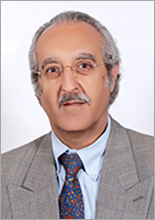Arab Banking: Effectiveness of Micro-Prudential Regulations – Part III
Part III of this seven-part series on Arab banking looks at the effectiveness of micro-prudential regulations, particularly capitalization requirements that aim to shore up banks’ balance sheets across the Arab world.
Like most of their counterparts in the rest of the world, regional financial authorities have traditionally focused on micro-prudential regulation and supervision. They have strived to adopt international standards, although some countries have fallen behind in this process and still need to fill major gaps in their regulatory framework. As Arab countries were adopting international standards, regional regulatory standards were converging, but situations remain diverse, largely reflecting the different levels of development of financial systems.
The three pillars of Basel II aim at enhancing bank stability. They focus on capital requirements, banking supervision, and market discipline. Most Arab countries have engaged in implementing the Basel II accord and are adapting regulation to Basel III enhanced rules.
Most non-GCC country banks have improved or maintained capital adequacy, except for Lebanon, whose capital to risk-weighted assets (CRWAR) and capital-to-assets ratios (CARs) declined, remaining in the 12 to 13 percent and 7 to 8 percent range, respectively. GCC countries have traditionally kept relatively high ratios well above 15 percent, and sometimes more than 20 percent and well above the Basel II minimum requirement.
In a circular dated December 24, 2012, the Central Bank of Egypt (CBE) determined the minimum CAR at 10 percent. With an average CAR of 6.2 percent in 2011, the requirement entails a significant effort on the part of certain banks. Egypt had seen its CRWAR increase to 16.3 percent in 2010, but decrease subsequently to 13.4 percent at the end of June 2013, reflecting the economy’s dire circumstances. As of mid-2012, the minimum CAR requirement in Tunisia was 8 percent, which was considered too low considering the risks faced by the Tunisian banking system. An increase of banks’ minimum capital to 10 percent would entail mobilizing resources of about 1.3 percent of GDP, a fairly significant amount.
Saudi Arabia’s banking sector overall is well capitalized (IMF 2011). The solvency ratio for the sector as a whole was above 17 percent in December 2010. The Tier 1 capital ratio is about 15 percent, well above the 4 percent required by Basel II and the 4.5 percent required by Basel III, and providing a significant cushion. All banks have a CAR above the regulatory minimum 8 percent.
Although regional banks are expanding across borders, cross-border supervision and crisis management and resolution strategies are lagging. The global financial crisis highlighted the need for supervisory cooperation across countries. Abundant capital in several countries, particularly in the GCC countries, prompted banks to expand across borders in recent years, a trend that is expected to continue. At the same time, supervisors do not regularly conduct comprehensive and up-to-date data collection and analysis of banks’ detailed cross-border exposures.
Having examined these capitalization requirements and exposure risks, the next Part IV in this series outlines the macro-prudential, or systemic, regulations currently governing banking systems across the Arab world.
Read Part I, Part II, Part IV, Part V, Part VI, Part VII
Wafik Grais is an International Senior Adviser specializing in Islamic finance, financial regulation, investment financing, private equity management, and corporate governance with expertise in SMEs and green growth financing. He was co-founder and chairman of Viveris Mashrek, a Cairo-based, financial advisory services company specialized in private equity investments in SMEs, licensed by Egypt's Financial Supervisory Authority. He spent 28 years in international finance notably with the World Bank in Washington DC where he held several senior positions both in operations and at corporate levels. He holds a Ph.D. in Economics.
